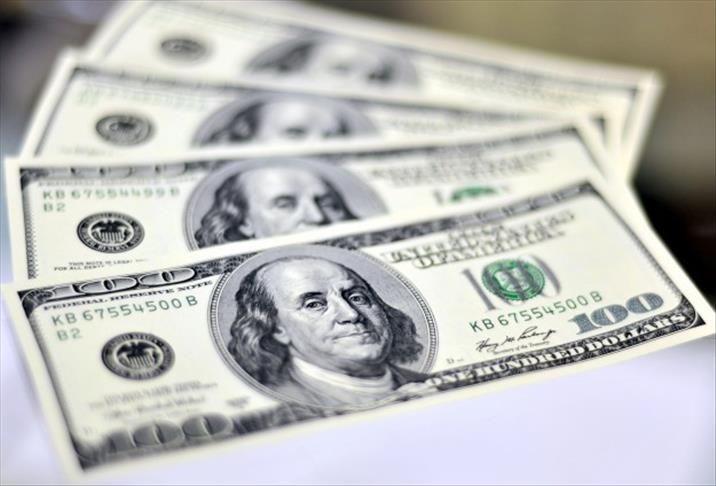
BUENOS AIRES, Argentina
Argentina’s peso plunged on the black market for a second consecutive day Tuesday as people seek to safeguard their savings against further currency depreciation, rising inflation and a contracting economy.
The peso fell 2.7 percent to 11.60 per U.S. dollar on the black market from 11.30 Monday, when the exchange rate had dropped 3.7 percent compared with 10.90 on Friday.
“The country’s financial panorama is expected to get more complicated in the second half of this year and so more people are turning to dollars as a refuge for their savings,” said Gustavo Quintana, a currency trader at PR Corredores de Cambio in Buenos Aires.
The black market exchange rate has become a thermometer of people’s sentiment about the health of Latin America’s third-largest economy since the government started restricting access to dollars on the official market in 2011.
The government took the move to slow capital flight after it doubled that year, causing foreign-currency reserves to decline.
The restrictions, it was temporarily declared illegal to buy dollars for savings, forced people to turn to the back rooms of jewelry shops and money houses to buy dollars to protect their savings against a steady depreciation of the peso on the official market. The gap between the official and black markets reached a peak of more than 100 percent in 2013.
The central bank, which administers the official exchange rate by buying and selling dollars out of its hard-currency reserves, managed to contain the slide on the black market in January by devaluing the official rate by 20 percent against the dollar.
To help, the monetary authority also raised benchmark interest rates to 30 percent annualized. This encouraged people to save in peso certificates of deposit instead of buying dollars, helping to keep down demand for the U.S. currency.
The black market rate averaged about 10.30 per dollar until last week when the central bank started to gradually allow the peso on the official market to depreciate from the 8 per dollar it had held at since the devaluation. The official rate has since dropped to 8.09 per dollar, for a 43 percent gap with the black market.
Quintana said he expects the black market rate to take a steeper drop in July after foreign currency inflows from soybeans, the country’s biggest export, start slowing.
The export season peaks between April and June, allowing the central bank to rebuild reserves. The reserves have recovered from a seven-year low of $26.7 billion on April 4 to $28.4 billion, but still far off a $53 billion peak in 2011.
With the expected decline in dollar inflows, economists warn that it will be harder for the central bank to sustain the official exchange rate, saying it is likely to fall below 9 per dollar by the end of the year. Peso futures contracts are trading at 9.63 per dollar for December.
“The second half is going to be a lot tougher and there is no way to improve the situation in the short term,” Orlando Ferreres, an economist at Orlando Ferreres & Asociados in Buenos Aires, said Tuesday on Radio Mitre.
He said a leading problem is that inflation has surged to 40 percent annualized by his estimates, up from an average of 25 percent between 2011 and 2013.
“What we have is many years of making mistakes, which seemed to have no consequences but now are rushing together,” he said.
Among these errors, low energy investment has led to a surge in energy imports that are cutting the trade surplus and bleeding the country of dollars, he said. Without enough dollars, the government is barring imports of equipment and supplies for manufacturers, leading many industries to slow production and layoff workers.
Ferreres said the government likely will have to respond by devaluing the peso again but at the cost of stoking inflation by pushing up the peso cost of imports.
The high inflation, weakening currency and slowing economy are already taking their toll on residents.
A survey released Tuesday by Opinión Pública Servicios y Mercados, a polling firm, found that 67 percent of Argentines get to the end of the month with no disposable income remaining for savings.
The survey also found that 59 percent of those polled expect the economy to worsen and 85 percent said that the government needs to make policy changes to improve the situation.
By Charles Newbery
englishnews@aa.com.tr
Anadolu Agency website contains only a portion of the news stories offered to subscribers in the AA News Broadcasting System (HAS), and in summarized form. Please contact us for subscription options.

